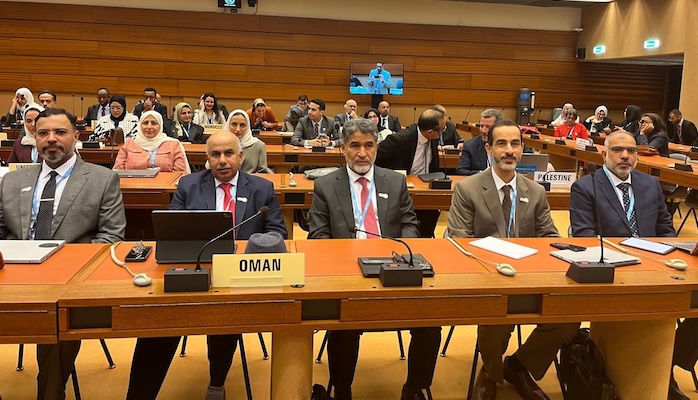
Muscat: The Sultanate of Oman today received a certificate of recognition from the World Health Organization (WHO) declaring its food products free of artificial trans fats. Oman is among nine countries worldwide and the second Arab country to achieve this achievement. This achievement reflects its commitment to improving quality of life, promoting health prevention, and raising public health indicators.
This came during the 78th World Health Assembly meeting, held in Geneva, Switzerland, which began today and will continue until May 27.
His Excellency Dr. Hilal bin Ali Al Sabti, Minister of Health, received the certificate of recognition.
In a press statement, His Excellency Dr. Hilal bin Ali Al Sabti, Minister of Health, said: "Eliminating artificial trans fats is a milestone in our commitment to promoting and protecting public health. We are proud to be among the nine leading countries globally and the second in the Arab world to implement this life-saving policy to eliminate this harmful component."
This achievement is the culmination of the Sultanate of Oman's tireless efforts to develop quality and safety standards in all areas that touch human health and enhance prevention for citizens and residents, in line with the strategic objectives of Oman Vision 2040, which aims to reach the ranks of developed countries through priorities that prioritize health.
This achievement is a result of the joint efforts of the Ministry of Health, the Ministry of Agriculture, Fisheries and Water Resources, and relevant authorities to ban the use of artificial trans fats in food products.
This year's World Health Assembly, held under the theme "One World for Health," will discuss several topics in which the Sultanate of Oman's delegation will participate, including the proposed program budget for the biennium 2026–2027 and the role of the Global Coordinating Mechanism for the Prevention and Control of Noncommunicable Diseases in the WHO's work on multi-stakeholder engagement in the prevention and control of noncommunicable diseases: a report on the independent evaluation.
Discussions will address mental health and social communication, as well as global strategies and action plans due to expire within one year, including the Comprehensive Implementation Plan on Maternal, Infant and Young Child Nutrition 2021–2025, the Global Strategy for Women's, Children's and Adolescents' Health, and the Global Strategic Directions for Nursing and Midwifery 2021–2025.
The meeting will also address the issue of antimicrobial resistance, discuss the Intergovernmental Negotiating Body for the drafting and negotiation of a WHO convention, agreement, or other international instrument on pandemic prevention, preparedness, and response, and address the impact of climate change on health through discussion of the WHO Global Strategy on Environmental Health and Climate Change: The transformation needed to sustainably improve people's lives and well-being through healthy environments.
The meeting will review integrated emergency, critical, and surgical care to achieve universal health coverage and protection from health emergencies. It will also address substandard and falsified medical products, as well as global strategies and action plans due to expire within one year, in accordance with the Global Strategy for Digital Health 2020-2025.